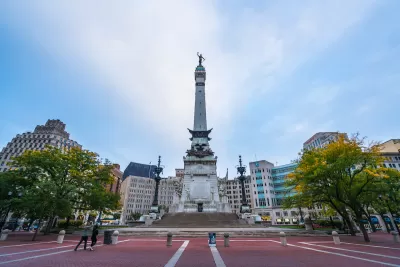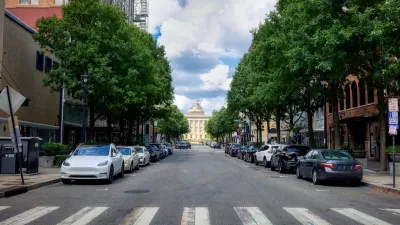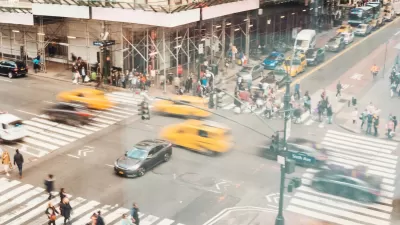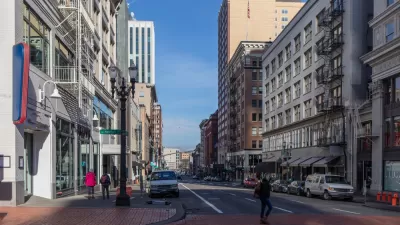As of now, the city lacks a dedicated funding source for pedestrian safety efforts.

Indianapolis could join other cities in developing a Vision Zero plan as part of an effort to stem rising pedestrian deaths, reports Nadia Scharf in the Indianapolis Star.
According to Scharf, “A Vision Zero plan has been on the table for nearly a decade. Now, several city-county council members plan to present a proposal in July and the city has sent out a request for proposals for a study that would examine how a Vision Zero plan could operate in Indy.”
The strategy requires collaboration between various city departments and nonprofits and will likely include infrastructure improvements such as bike lanes, curb extensions, and crosswalks. The proposed Vision Zero bill “will set a timeline goal to see results, create and define an oversight committee to keep efforts on track towards that goal, and set requirements for the first draft of an action plan.”
According to Scharf, Indianapolis faces a disadvantage when it comes to transportation funding: because the state allocates funding based on road miles rather than lanes or vehicle throughput, there is no dedicated funding source for Vision Zero to date. “It’s unclear what changes led by a Vision Zero plan might look like in Indianapolis, but advocates and policymakers alike agree: something needs to change to make Indy streets safer.”
FULL STORY: Indy is in a 'pedestrian safety crisis.' Can a Vision Zero traffic safety plan save lives?

Alabama: Trump Terminates Settlements for Black Communities Harmed By Raw Sewage
Trump deemed the landmark civil rights agreement “illegal DEI and environmental justice policy.”

Study: Maui’s Plan to Convert Vacation Rentals to Long-Term Housing Could Cause Nearly $1 Billion Economic Loss
The plan would reduce visitor accommodation by 25% resulting in 1,900 jobs lost.

Planetizen Federal Action Tracker
A weekly monitor of how Trump’s orders and actions are impacting planners and planning in America.

Waymo Gets Permission to Map SF’s Market Street
If allowed to operate on the traffic-restricted street, Waymo’s autonomous taxis would have a leg up over ride-hailing competitors — and counter the city’s efforts to grow bike and pedestrian on the thoroughfare.

Parklet Symposium Highlights the Success of Shared Spaces
Parklets got a boost during the Covid-19 pandemic, when the concept was translated to outdoor dining programs that offered restaurants a lifeline during the shutdown.

Federal Homelessness Agency Places Entire Staff on Leave
The U.S. Interagency Council on Homelessness is the only federal agency dedicated to preventing and ending homelessness.
Urban Design for Planners 1: Software Tools
This six-course series explores essential urban design concepts using open source software and equips planners with the tools they need to participate fully in the urban design process.
Planning for Universal Design
Learn the tools for implementing Universal Design in planning regulations.
Caltrans
Smith Gee Studio
Institute for Housing and Urban Development Studies (IHS)
City of Grandview
Harvard GSD Executive Education
Toledo-Lucas County Plan Commissions
Salt Lake City
NYU Wagner Graduate School of Public Service





























